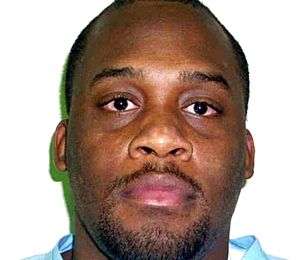Darick Walker was executed by the State of Virginia for two murders
According to court documents Darick Walker would shoot and kill two men in front of their loved ones in separate incidents: Stanley Beale, 36, was killed on the night of Nov. 22, 1996, and Clarence Elwood Threat, 34, early the morning of June 19, 1997
Darick Walker would be arrested, convicted and sentenced to death
Darick Walker would be executed by lethal injection on May 20 2010
Darick Walker Photos

Darick Walker FAQ
When Was Darick Walker Executed
Darick Walker was executed on May 20 2010
Darick Walker Case
Darick Demorris Walker was executed by injection last night for the separate killings of two Richmond men.
Walker, 37, was pronounced dead at 9:24 p.m., said Larry Traylor, spokesman for the Virginia Department of Corrections. It was the second execution in the state this year and the 107th since the U.S. Supreme Court allowed executions to resume in 1976.
At 8:55 p.m., Walker, a tall man wearing sandals and blue prison clothing, was escorted into the death chamber by officers. He was cooperative and appeared calm as he looked around the room and toward the viewing area, where the witnesses included one of his attorneys, Danielle Spinelli.
He was strapped to a gurney, and a curtain was pulled to block the view of witnesses while the intravenous lines were attached to his arms.
The curtain was opened again at 9:15 p.m. Asked whether he had a last statement, Walker said, “Last words being: I don’t think y’all done this right, took y’all too long to hook it up. You can print that. That’s it.”
Traylor later explained that there was a delay in placing one of the IV lines.
The first of three chemicals used in the execution began flowing. Walker took several deep breaths, his breathing grew shallow, and then it stopped.
He was pronounced dead at 9:24 p.m., and the curtain was drawn again.
Outside the Greensville Correctional Center where the execution took place, four death-penalty protesters stood in silence, holding candles. They declined to comment.
State law permits the death penalty for someone who commits two premeditated murders within three years. Testimony and other evidence at his 1998 trial showed Walker shot two men to death in front of loved ones.
Stanley Beale, 36, was killed on the night of Nov. 22, 1996, and Clarence Elwood Threat, 34, early the morning of June 19, 1997. Each man was shot repeatedly by a gunman who kicked in their apartment doors.
Gov. Bob McDonnell declined to intervene last week, and yesterday evening the U.S. Supreme Court turned down his appeals and request for a stay of execution.
Supreme Court spokeswoman Patricia Estrada noted that three justices — John Paul Stevens, Ruth Bader Ginsburg and Sonia Sotomayor — would have granted a stay of execution.
Reached by telephone yesterday before the execution, Alice Threat-Skipper, Threat’s mother, said she never has gotten over the crime. “It’s been a long, hard 12 years,” she said.
She said she learned her son had died in an early-morning telephone call from a relative of Threat’s girlfriend.
Threat-Skipper said her late son, a graduate of George Wythe High School, was raised in Richmond and was one of six children. As a child, he enjoyed playing baseball and bowling. As an adult, he had a good job and helped care for two children, she said.
Though she did not wish to stop the execution, Threat-Skipper said she does not believe in capital punishment and would have been satisfied had Walker been sentenced to prison without the possibility of parole so he could not harm anyone else.
Beale’s family could not be reached for comment
In the Beale slaying, Walker broke into the apartment and accused Beale of coming to his door to look for him. Beale did not know Walker. Threat’s girlfriend said Walker once had asked her for a date but said she turned him down because she was committed to Threat.
Walker’s lawyers had argued that he was mentally retarded and therefore ineligible for the death penalty. A split panel of the 4th U.S. Circuit Court of Appeals ruled that Walker had not proved that he fit the legal definition for mental retardation.
They also contended that authorities improperly withheld evidence that could have challenged the credibility of a key witness.
They said Beale’s then-13-year-old daughter originally told police she heard but did not see the shooter but testified later she saw Walker shoot her father. Walker’s lawyers did not learn of the girl’s earlier statement until after the trial.
A social history prepared on Walker’s behalf in 2003, when he was 30, said he functioned at the level of an 11-year-old; that he may have suffered from fetal alcohol syndrome; and that he had a family history of mental illness and mental retardation.









